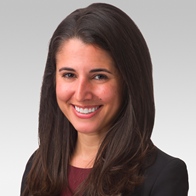AHA FIT Newsletter
FIT Spotlight

Sarah Chuzi
Fellow, Cardiovascular Diseases
Northwestern University Feinberg School of Medicine
@ChuziSarah
Dr. Sarah Chuzi, a third year general cardiology fellow at the Northwestern University Feinberg School of Medicine, is the recipient of the 2020 Laennec Fellow in Training (FIT) Clinician Award at the American Heart Association’s Annual Scientific Sessions 2020. The Laennec Award recognizes the importance of clinical acumen, inductive analytic skills, and teaching ability in future academic cardiologists.
Describe your journey in becoming a cardiology fellow and what are your specific clinical/research interests?
As a resident in the cardiac ICU, I found the complex interplay between cardiac physiology, critical care, and new technologies like mechanical circulatory support to be stimulating and exciting. I think the critical care aspect is what draws many of us to cardiology. However, as I’ve progressed through training, I’ve found the spectrum of care outside of the ICU to be just as rewarding. As a future Advanced Heart Failure physician, I find satisfaction in counseling patients on the importance of guideline-directed medical therapy, helping them understand their disease course, and assisting patients and their loved ones make complicated, sometimes life-altering decisions. Patients with heart failure are amazing and so resilient; they keep me passionate about the field.
From a research perspective, I’m interested in identifying opportunities to improve patient-centered medicine and quality of care in patients with advanced heart failure. With the support of a great mentorship team at Northwestern, including Drs. Jane Wilcox and Kathy Grady, I’ve conducted qualitative work to understand the end-of-life process for patients with ventricular assist devices. This is a burgeoning area of cardiology, but we still lag behind oncology in terms of how we apply palliative care principles and services (e.g. hospice) to our patients.
Briefly take us through your case that won the Laennec Fellow in Training Clinician Award.
We described a middle-aged man with recurrent presentations for atypical chest pain, dyspnea, and elevated troponin. Previous workup revealed nonobstructive coronary disease on angiogram and nonspecific wall motion abnormalities on echocardiogram. His presentations had been attributed to COPD exacerbations with secondary demand ischemia for which he had received brief courses of steroids. In contrast to prior presentations, however, he now had signs and symptoms of heart failure and new biventricular failure (LV EF 25%), and rapidly developed cardiogenic shock requiring VA ECMO. Endomyocardial biopsy revealed myocardial necrosis and fibrosis, and a mural thrombus with extensive eosinophilic infiltrate. This finding led us to re-evaluate the primary data which revealed a history of peripheral eosinophilia that had been intermittently suppressed by the steroids prescribed for presumed COPD. Cardiac MRI showed diffuse biventricular subendocardial fibrosis, confirming the diagnosis of Loeffler’s endocarditis. In addition to describing typical and atypical aspects of this rare disease, our case highlighted biases in clinical reasoning, which may have led to diagnostic delays.
What advice would you give to other FIT thinking about this award?
Go for it! The opportunity to collaborate with mentors at your institution to write up a complicated case and then present it to a group of peers and leaders in academic medicine on a national stage is really unique. Presenting a case and engaging with the members of the Laennec Committee and the Council on Clinical Cardiology, who are both leaders in the field and committed to trainee education, was a really valuable experience.
In terms of the case content, my mentor, Dr. Sadiya Khan, gave me great advice, which was to focus on the clinical decision-making and the importance of the physical exam, rather than the final diagnosis. I tried to frame my write-up and presentation in this way, focusing on the journey rather than the destination.